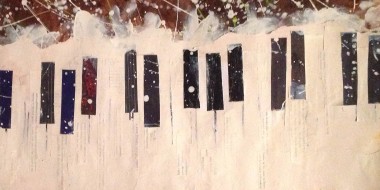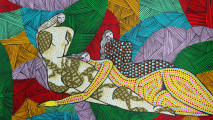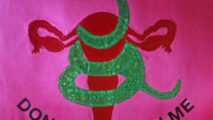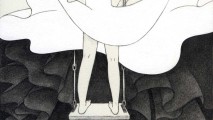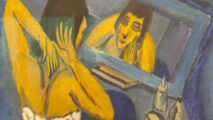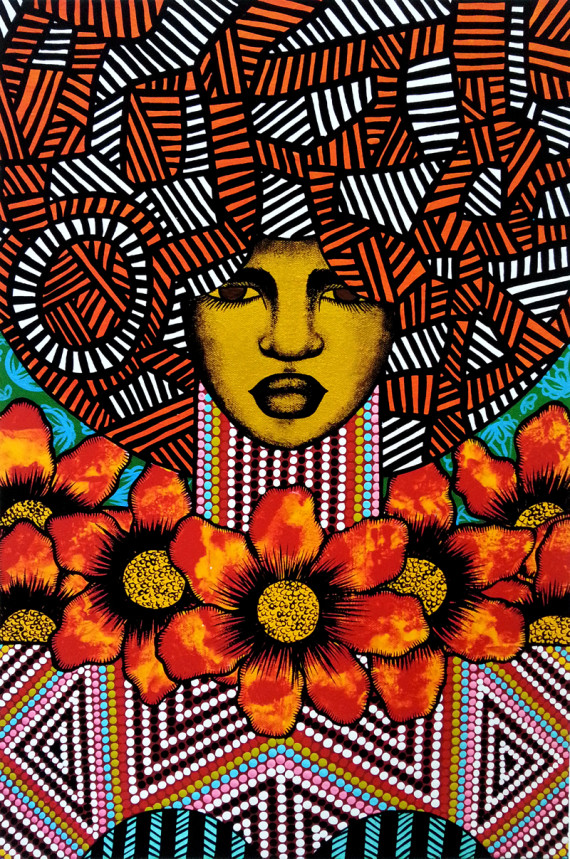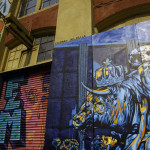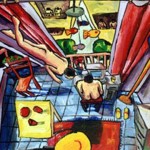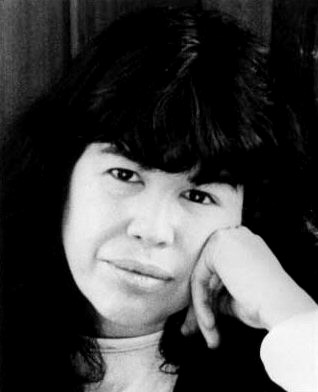She walked diagonally across the plaza, I saw her first. Julie, Jill, and I were taking a shopping break at an iron table outside the stores. Macy’s bags were smushed around the table legs. Angelita Hargraves, it had been a year, for all of us. She resigned from the ICU to take a nursing job closer to home, her new home, which we’d helped her get. Well, we’d helped her get to the shelter, after months of coaxing. We knew because of the forearm bruises, neck, it was the broken wrist that had propelled us to help. Three of us piled in Julie’s Chevy van, all women’s-movement bravado. After all, we told ourselves, if we can clean medicine-induced shit-sprays off walls, argue patient conditions with doctors, ignore the homeless drug addicts who lifted the sheets to show us their woodies, how hard could Angie’s husband Jeff be?
We were scared.
This was what we had to learn, our professors told us, nurses are caretakers. Even more than teachers, certainly more than doctors and the accompanying salaries. Famous for shitty relationships; nurses are convinced they can fix anything. Two semesters dedicated to fear and resources, at our colleges. We were our own examples: Jill’s divorce was final, that’s what we were celebrating on our shopping trip, and Julie had just gotten custody of her toddler. I was warily single, but not necessarily smarter.
Angelita, such a pretty name, not like all our mundane “J” names (mine in there too, Judy), her broad face with the room-lighting smile, the laugh that came from some pleasure cellar inside her. Parents raised in Mexico City, she was a seed inside her mother when the border crossing succeeded and her father established an eked-out living as a pool cleaner.
Two weeks after she started, we included her in the dawn Bloody Mary indulgences post-night-shift. Angie was overweight, sure, but we wouldn’t have called her fat. She was our friend. She had the blackest humor of us all, which is what nurses are known for; our defense mechanism against the unrecoverable comas, paralyses of jumping-off-rocks teenagers, and the sound of zipping body bags.
Now she was striding with confidence across the plaza in an orange dress, the bright color bouncing off her dark skin. Heels, a large white purse, some designer knock-off. Angelita paused to wait at the crosswalk that connected the outdoor mall halves. Jill and Julie turned heads together, no prompting from me. Maybe guilt was the rock I felt in my gut, a feeling that seemed to encompass our circle, like a tossed tablecloth, but we said nothing for awhile, until Jill broke the silence. “There’s…” and our heads all froze in the crosswalk direction. A family wagon cruised over the yellow striped walkway at a slow pace, plied with car seats.
Angelita’s husband, Jeff, was angry when he found us on the porch, still in his jackhammer-operating clothes. He opened the front door back so hard it clattered on its hinge spine and returned partway, an opposite slam. We didn’t let our flinches show, per our agreement in Julie’s van and assisted by a fortification belt of Stoley’s vodka. Somewhere along the line, Angelita had said there was a gun in the house.
Jeff was ahead of us on alcohol intake. He grabbed Jill’s jacket lapel, the North Face she’d bought at an outlet mall last year. With his overgrown mustache an inch from her face, he said, “What do you bitches want?” He released the purple chemically-created cloth, probably sewn by unpaid children in China, and Jill reeled back on the unpainted porch, into a skinny post. Fear tried to muscle in, but Julie and I hadn’t had our fill yet. Angelita parted the sheet on a porch window, her face without surprise.
“Run south!” I shouted. We’d planned this, knowing she’d know which way was south and it would take Jeff valuable minutes to calculate direction. Julie, on cue, ran around back of the house to intercept Angelita, and kept running, through the McJennan’s backyard, to her van. Jeff might have launched Jill into a post, but he’d reeled himself back against the door in his Miller High Life stupor. The Stoley’s wore off and we ran.
At the mall’s crosswalk now, we saw Angelita put her tan arm on the purse’s straps. She turned her head partially our way, even though the only car coming was in the other direction. We had driven her to the shelter, where the motherly LeAnn swallowed up Angelita in silence. She would give her blouses and anonymity. A new job at a new hospital. Angelita didn’t turn to wave at us then, but no offense was taken. We knew we’d see her.
And here we were, having not seen her. We had not invited her to morning happy hours or day-off lunches, or this celebration of Jill’s divorce. We did not contact LeAnn. We lauded ourselves on heroic efforts, but we never called Angelita. The night shift manager at the hospital commended us privately. We were so good.
Yes, she turned her head to look in the direction of Ann Taylor’s all-the-same stores, but we didn’t follow her gaze. We focused on the bruise, high cheek, the familiar location. She seemed to turn a few more degrees, as if in consideration of turning all the way around to acknowledge us, but instead crossed the walkway. A black Escalade idled there, Jeff with the window down, tapping impatient fingers. The orange dress slipped into the car, swallowed woman we could no longer see. All us J girls were radically unsure what we admitted with our silence.
Martha Clarkson manages corporate workplace design in Seattle. Her poetry, photography, and fiction can be found in monkeybicycle, Clackamas Literary Review, Seattle Review, Alimentum, elimae,. She is a recipient of a Washington State Poets William Stafford prize 2005, a Pushcart Nomination, and is listed under “Notable Stories,” Best American Non-Required Reading for 2007 and 2009. She is recipient of best short story, 2012, Anderbo/Open City prize, for “Her Voices, Her Room.”
Related Posts
« MUSIC THEORY –Johnnie Mazzocco Easy: In Memory of Ortho-Novum 7/7/7 — Amanda Hiber »
